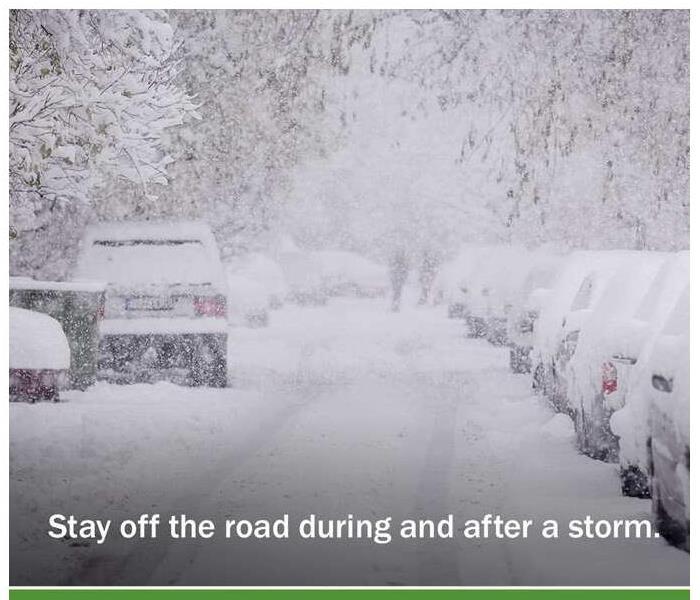Winter Storm Preparedness 2.0
1/7/2022 (Permalink)
Winter has most definitely arrived in the Upper Valley! The snow is falling and the temps have dropped.
This got me thinking about preparedness in 2022!
Things have changed in recent years and we are all living in a different reality, let's take a look at how this will affect or change the things we need to take care of ourselves and our loved ones during the Winter months..
What you should know about Winter Weather.
- Know what to do before, during, and after a winter storm.
- Listen to local officials.
- Have emergency supplies in place at home, at work, and in the car.
- Stay off the road during and after a winter storm. Allow the plow trucks to do their work.
- Have a carbon monoxide alarm in place, especially if using alternative heating devices.
- Use safe heating devices.
Winter storms create a higher risk of car accidents, hypothermia, frostbite, carbon monoxide poisoning, and heart attacks from overexertion. Winter storms including blizzards can bring extreme cold, freezing rain, snow, ice and high winds.
A winter storm can:
- Last a few hours or several days.
- Cut off heat, power and communication services.
- Put older adults, children, sick individuals and pets at greater risk.
Preparing your home for Winters arrival is important.
- Prepare your home to keep out the cold with insulation, caulking and weather stripping.
- Learn how to keep pipes from freezing in your home.
- Install and test smoke alarms and carbon monoxide detectors with battery backups.
- Gather supplies in case you need to stay home for several days without power.
- Keep in mind each person’s specific needs, including medication and don't forget masks..
- Remember the needs of your pets.
- Have extra batteries for radios and flashlights.
If you are unable to afford your heating costs, weatherization or energy-related home repairs, contact the LIHEAP for help.
Avoid carbon monoxide poisoning.
Only use generators and grills outdoors and away from windows. Never heat your home with a gas stovetop or oven.
In case of an emergency
Be prepared for winter weather at home, at work and in your car. Create an emergency supply kit for your car. Include jumper cables, sand, a flashlight, warm clothes, blankets, bottled water and non-perishable snacks. Keep a full tank of gas.
**If you are able to, set aside items like soap, hand sanitizer that contains at least 60 percent alcohol, disinfecting wipes, and general household cleaning supplies that you can use to disinfect surfaces you touch regularly.
Stay off roads if at all possible. If trapped in your car, then stay inside.
Limit your time outside. If you need to go outside, then wear layers of warm clothing. Watch for signs of frostbite and hypothermia.
Reduce the risk of a heart attack by avoiding overexertion when shoveling snow and walking in the snow.
#WinterSafety #WinterStorm






 24/7 Emergency Service
24/7 Emergency Service
